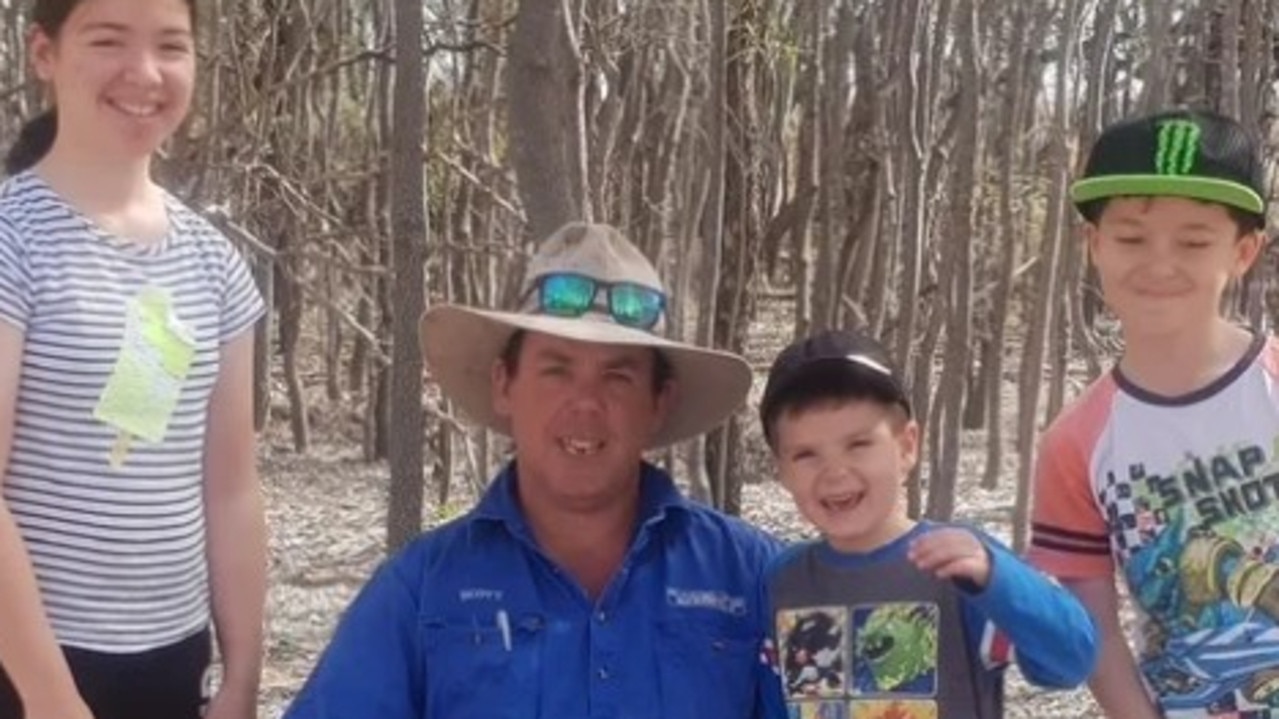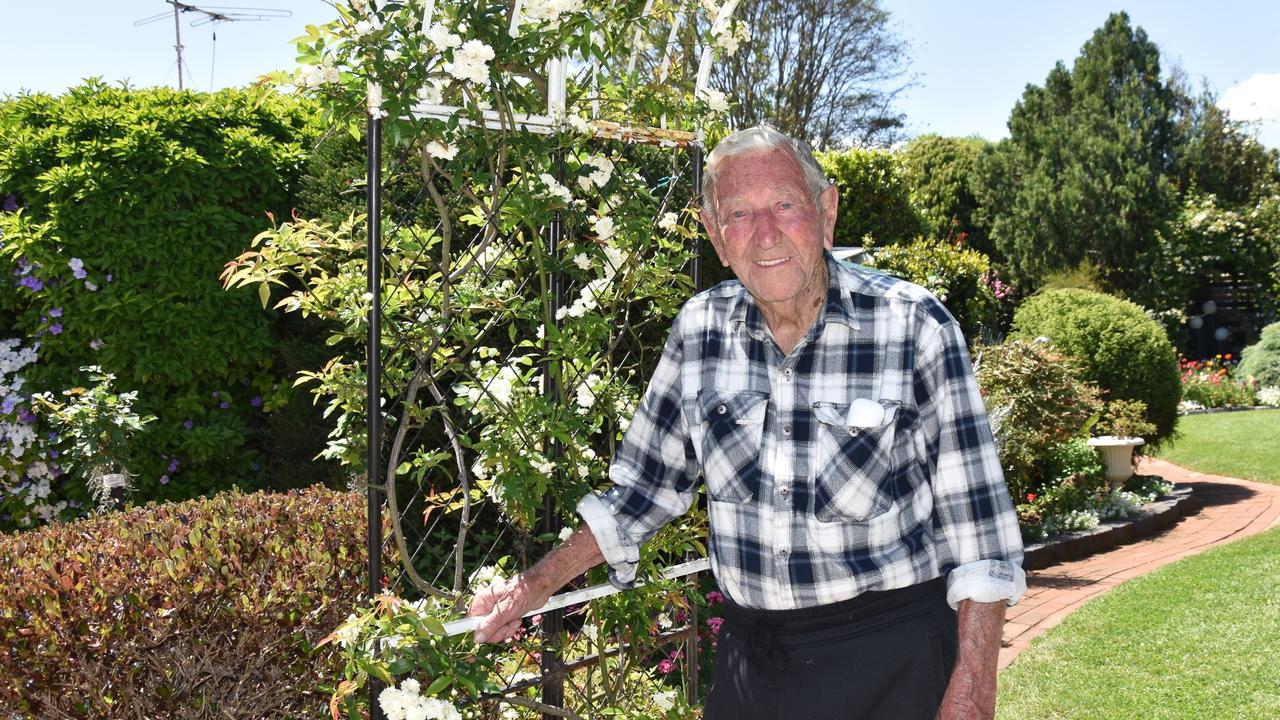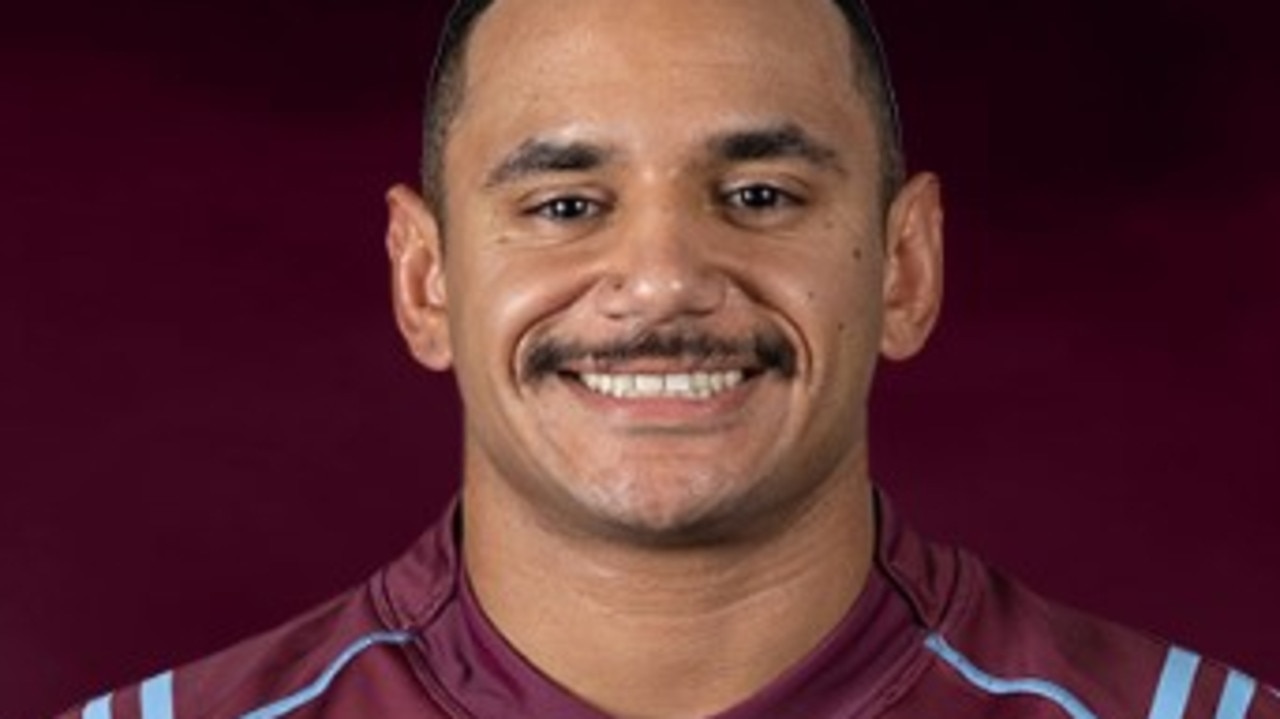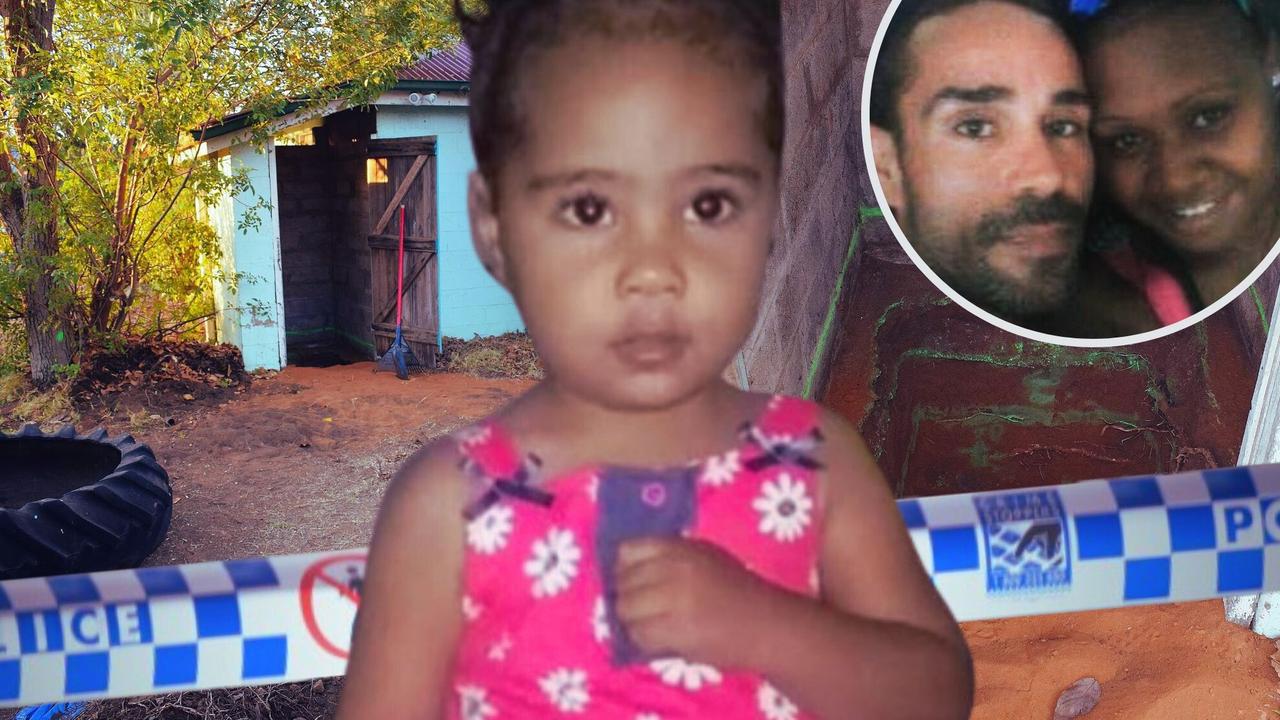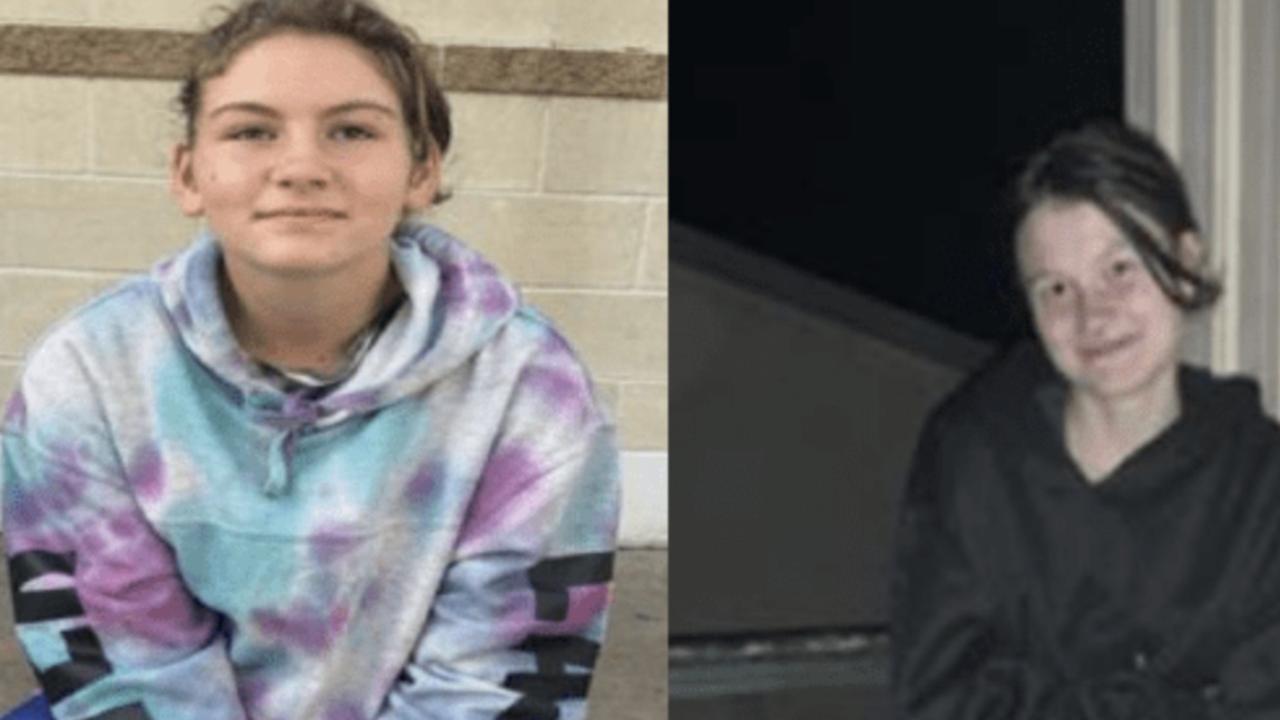MDNA netball coach Margie Babia, 51, diagnosed with Sézary syndrome
A Brisbane netball stalwart elevating players to professional careers needs lifesaving treatment after a rare condition forced her body to produce 10 times the amount of skin cells. It all started with what she thought was eczema. GRAPHIC
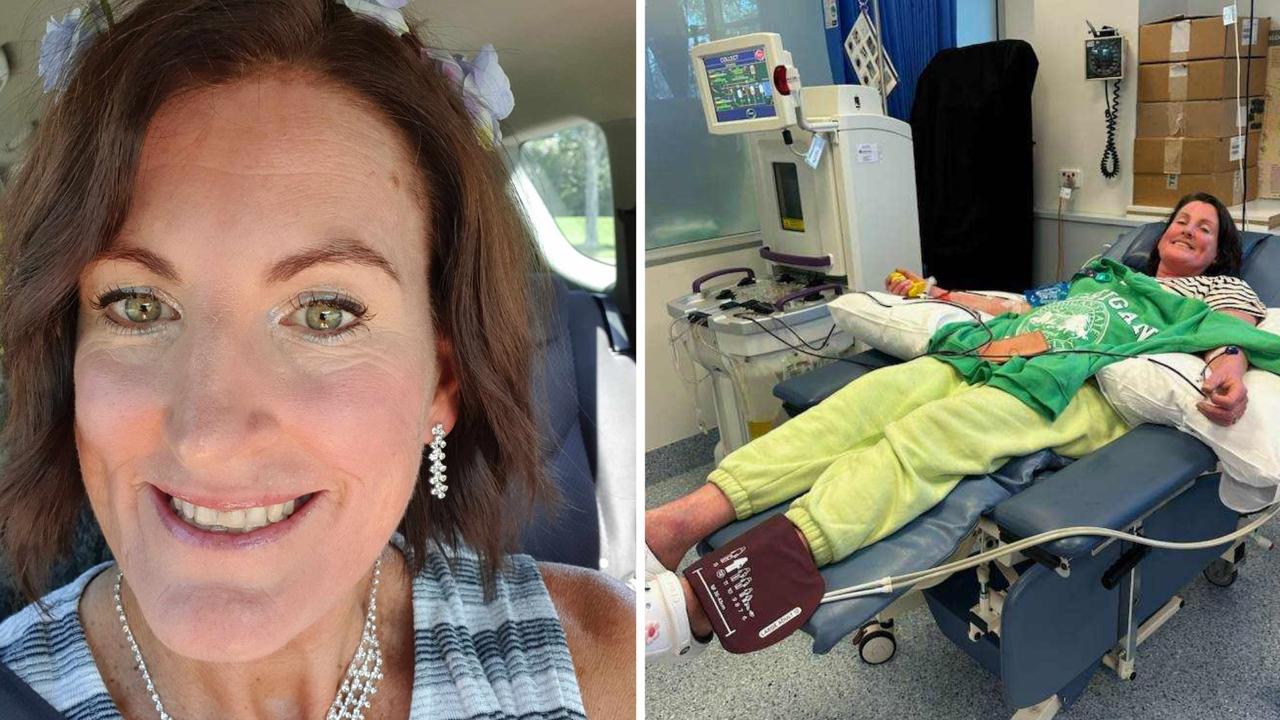
Ipswich
Don't miss out on the headlines from Ipswich. Followed categories will be added to My News.
Brisbane’s netball community is rallying around beloved netball coach Margie Babia after she received a rare, life-threatening cancer diagnosis from an eczema-like rash on her leg.
In March 2022, the 51-year-old discovered a slight red rash on her leg and went to her doctor to check it out, as she had previously dealt with eczema.
Her general practitioner initially gave her a steroid tablet to try and diminish the noticeably growing rash, but the treatment was unsuccessful.
After her doctor discovered the rash was persistent, he thought it best to send Mrs Babia away for a regular blood check-up. Shortly after, she was told the test results were serious and pointed to potentially cancerous cells.
By June 12, 2022, she was diagnosed with the rare Sézary syndrome.
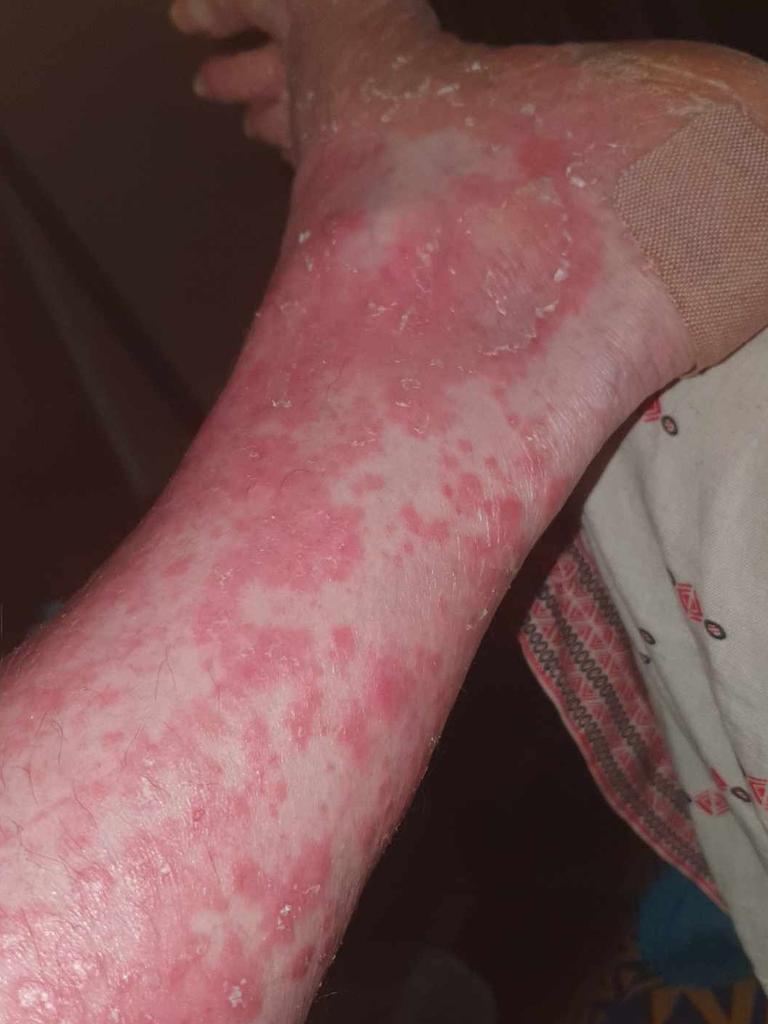
Sézary syndrome is an aggressive form of blood cancer called cutaneous T-cell lymphoma which attacks the body’s blood and skin cells with a noticeable red, severely itchy rash.
The disease is known to be terminal, but Ms Babia is hopeful she can be part of the 20–60 per cent who achieve a 5-year survival rate.
“Despite a full body flare up (of the rash), only one per cent of your skin can actually carry evidence of cancer, and it’s really lucky (the haematologist) got the right type of skin for cancer and they were able to pick (my diagnosis) up,” Ms Babia said.
“To be diagnosed with Sézary syndrome, you have to have a skin biopsy and the bloods together and see the evidence of abnormal cells in both, and then they can diagnose it.
“From June last year, I was seeing the haematologist weekly and having blood tests weekly, and I started with an immunosuppressant injection every Monday, which I have till this day.
“And it kept the level of cancer in my blood at bay.
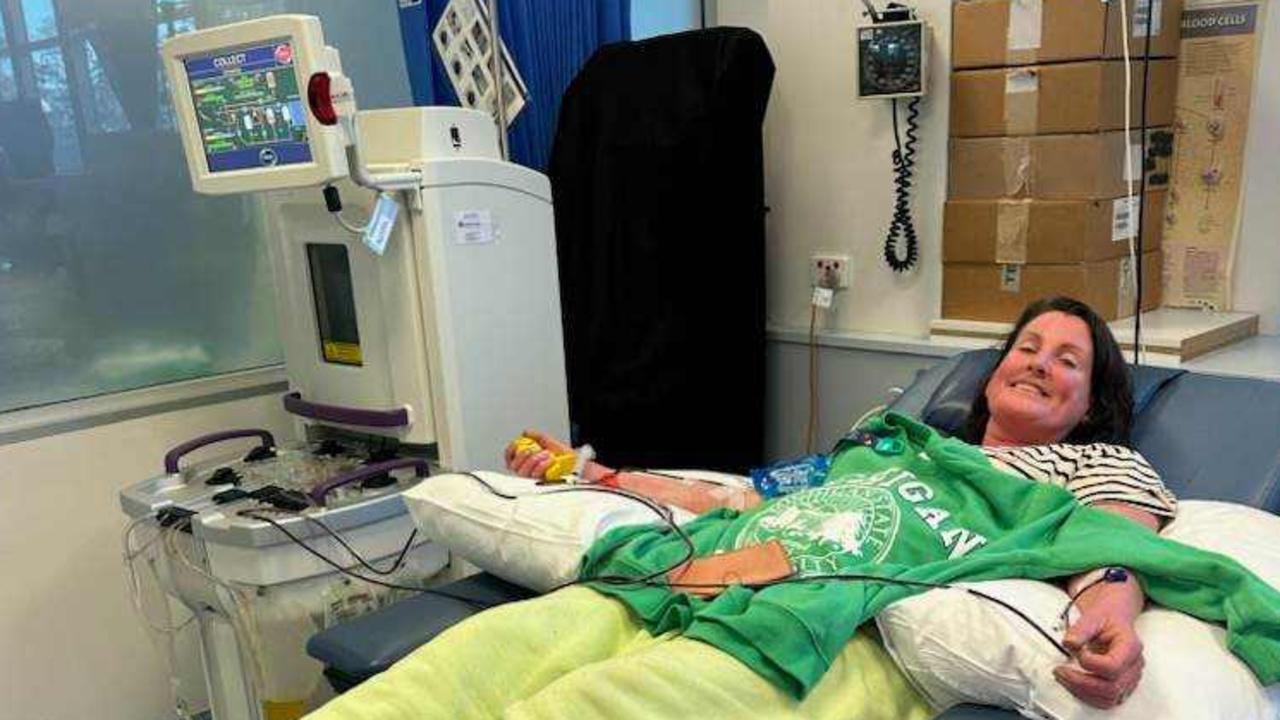
Mrs Babia says she was fortunate to be going through the public medical system as it gave her access to many specialists and clinics.
By December, Mrs Babia saw three specialists at the Princess Alexandra Hospital for her case: a haematologist, dermatologist and radiologist.
“And that’s why this disease is complex, as it’s in the skin and the blood.”
Mrs Babia’s Sézary syndrome case was discussed at a meeting with haematologists across Australia.
“They discussed my case because I was showing really good results … and my skin wasn’t going crazy bad, so they were quite intrigued with how well I was responding (to the treatment).
But despite the promising results late last year, her good progress with the treatment had taken a downturn, and by January, her skin had flared right up again.
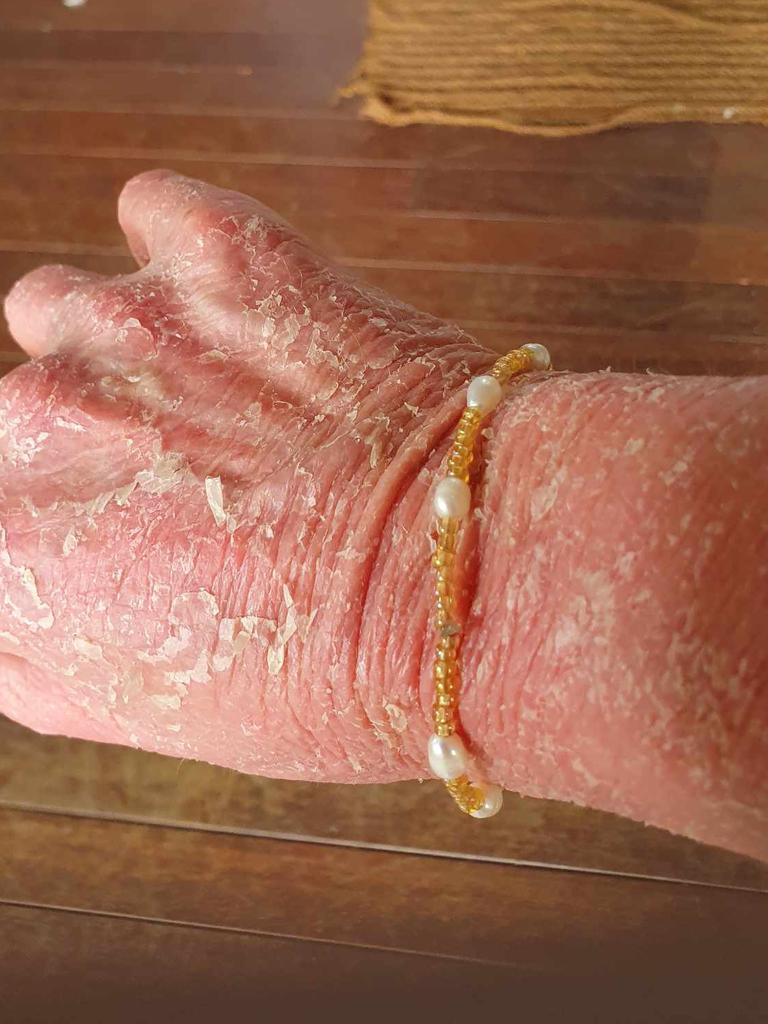
“I was applying a topical steroid cream to my body every day.
“I was going to the dermatology department at the Princess Alexandra Hospital (PA) and having UV photopheresis to my skin where I would stand in a booth like an artificial sun tanning booth … to help treat the cancer.
“What happens with the Sézary syndrome is your body produces ten times the skin than the normal person, and you shed skin everywhere as well as having this rash.
“So your hands and feet are actually (biologically) coded not to shed, so you get this skin build up on your hands and feet, and you get really bad cracks.
“I got to the point where I could not walk with these horrible cracks in my feet.
“So they decided to just do radiation on my feet.”
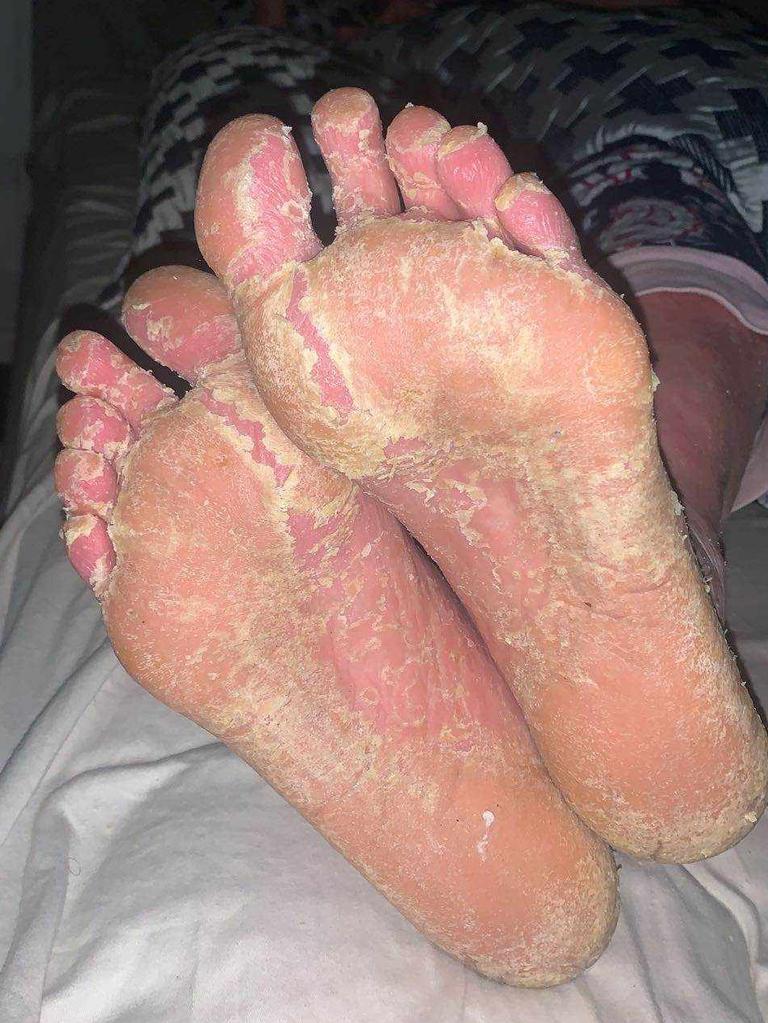
Mrs Babia is using the only extracorporeal photopheresis (ECP) machine in Queensland to help manage the disease’s rash symptoms.
“A lot of people with this disease will try all sorts of treatments and drugs, and a lot of them are chemos and things that are detrimental really to your health along the way.”
Mrs Babia’s only chance of a cure is through a successful stem cell transplant (SCT) treatment in October, where she will be at the Royal Brisbane Hospital for at least four weeks, and it may take up to a year for her to be recovered entirely from the SCT.
“The disease doesn’t respond for a long period of time (to different types of treatments) – so there’s no cure for Sézary syndrome except for potentially an SCT.
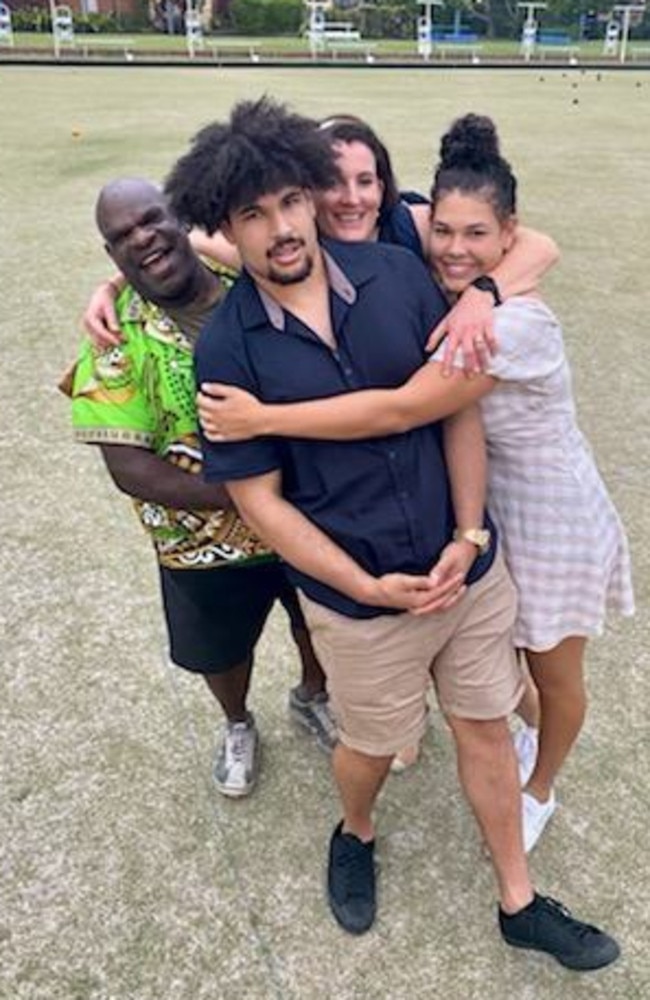
“I wouldn’t be able to work for (at least) six months … my husband will have to help out as best he can while working.
“I am exhausted, and the disease is really taxing on your energy as you are producing that excess skin daily.
“The dermatologist says it’s like running a marathon daily plus everything else.
“That, on top of all the treatments, is really challenging.
“It’s impacted our family massively because I have to work — I need money.
“I’m managing to get to work (at the moment), but I am absolutely exhausted, and there are periods where I was in a wheelchair — I was on crutches for a while because I couldn’t walk.”
Mrs Babia has been a passionate netball lover her whole life, previously representing Victoria at the U21 national championships.
She loves to give back as a coach and is known by many to be a knowledgeable and kind leader for her players.
She is on the Metropolitan Districts Netball Association (Metro) representative committee and coaches the U23s Greater Brisbane Netball League (GBNL) Metro rep team.

She is also a loyal member of her local Saturday netball club, Saints Netball helping coach their cadet teams. But since her declining health, Mrs Babia has had to give up Saturday netball after prolonged sun exposure worsened her conditions.
“It just got too much cause with the ECP treatment, I am not allowed to be out in the sun, and I must wear sunglasses for 24 hours after.
“My skin and eyes are really sensitive to the light, so I had to pull out of that one (club netball).
“Because GBNL is at night, I am managing that one … but I am crawling there some nights just not knowing how I’m going to get through (coaching) it.”
She recalled how challenging it was telling her netball girls about the diagnosis.
“So I felt like I had to tell them as they are older and to respect their feelings.
“I get worried about how they are coping with that because it’s a lot for the girls to deal with, and I don’t want them to (worry).
“I love being around them — they bring me joy.
“I don’t want them to feel like they owe me anything for doing it (coaching).
“I get everything back from the smiles on their faces.
“It inspires you to carry on.”
The netball community was shocked to discover Ms Babia’s disease.
Saints Netball Club coaching convener Liz Schultz described the moment she found her long-term friend’s diagnosis as devastating.
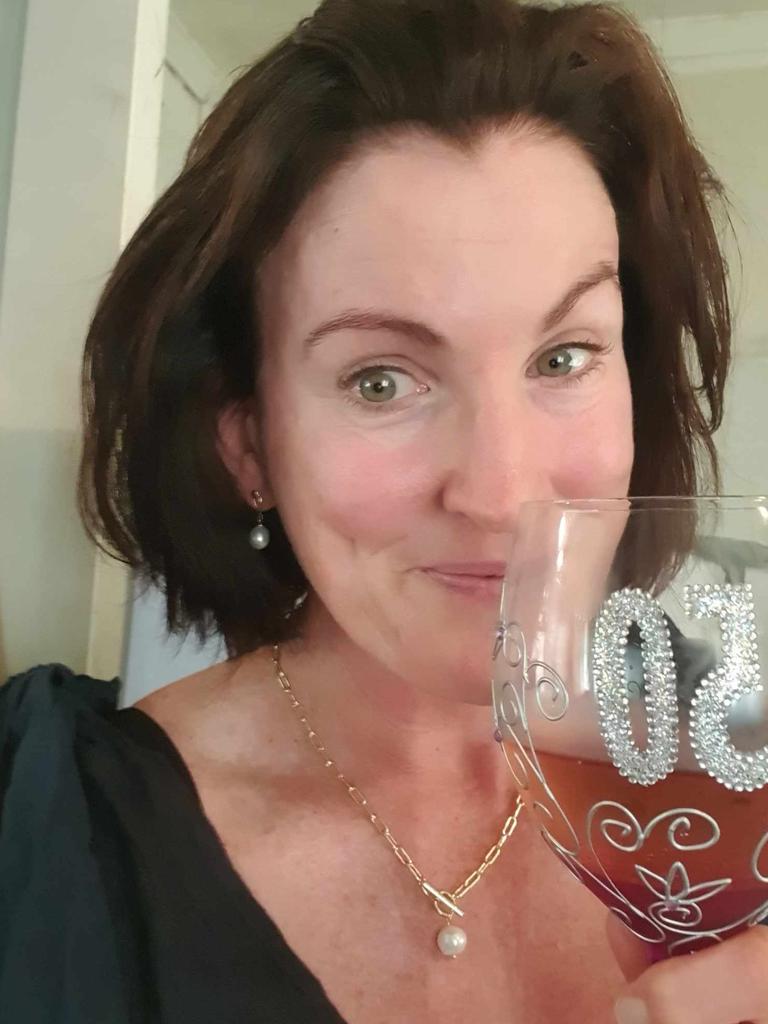
“You just don’t expect someone like Margie, who’s just so strong and fit and healthy, to come down with something like this,” Ms Schultz said.
“I was absolutely devastated for Margie and her beautiful family when she told me.
“Margie is the most giving and generous coach with the most experience and expertise.
“She just gives so much of her time and knowledge to our players.
“Anytime the girls have any type of trial coming up — trialling for (The Hart Sapphire Series) Tigers or trialling wherever — she’s there on a Friday afternoon trying to get them ready because she wants them to succeed.
“She wants them to reach their goals, and she does whatever it takes to get them there.
“Everyone wants Margie to coach ‘cause they all know how good she is but also because of how much she cares about the girls.”
Margie’s netball “village” has organised a GoFundMe to support her and her family over the next year when she will be unable to work because of the intensive treatment.
“And that’s obviously reciprocated (by the girls) because if you look at that GoFundMe page, like half the donations are 19 and 20-year-old girls she has coached,” Ms Schultz said.
“She’s just got so many friends – the netball community is amazing.
“Even other (netball) clubs who don’t have a lot to do with Margie are coming on board.
“She is not someone who shares or leans on other people in that regard.”
Mrs Babia believes there may only be a handful of cases of Sézary syndrome in Australia, and those who live regionally do not receive the same kind of treatment she does in the city.
“I’m just so lucky to live in Brisbane. If I lived in Townsville or Newcastle, I wouldn’t have access to this (treatment) close by,” Mrs Babia said.
Mrs Babia said if someone with the illness is not cured by the five-year mark, there’s a chance they may not survive it.
“You have to continually get check-ups, and they don’t tick you off as cured until there’s no sign of cancer at the five-year mark.
“I’m a bit of an anomaly. I’m really young for it (the disease), and it’s normally men who are diagnosed.
“The drugs are awful … to try and kill the cancer, and then you have organ problems because the treatments are harsh.”
Mrs Babia has recommended that older people get regular blood tests and watch out for rash-like symptoms of Sézary syndrome.
More Coverage
Originally published as MDNA netball coach Margie Babia, 51, diagnosed with Sézary syndrome



